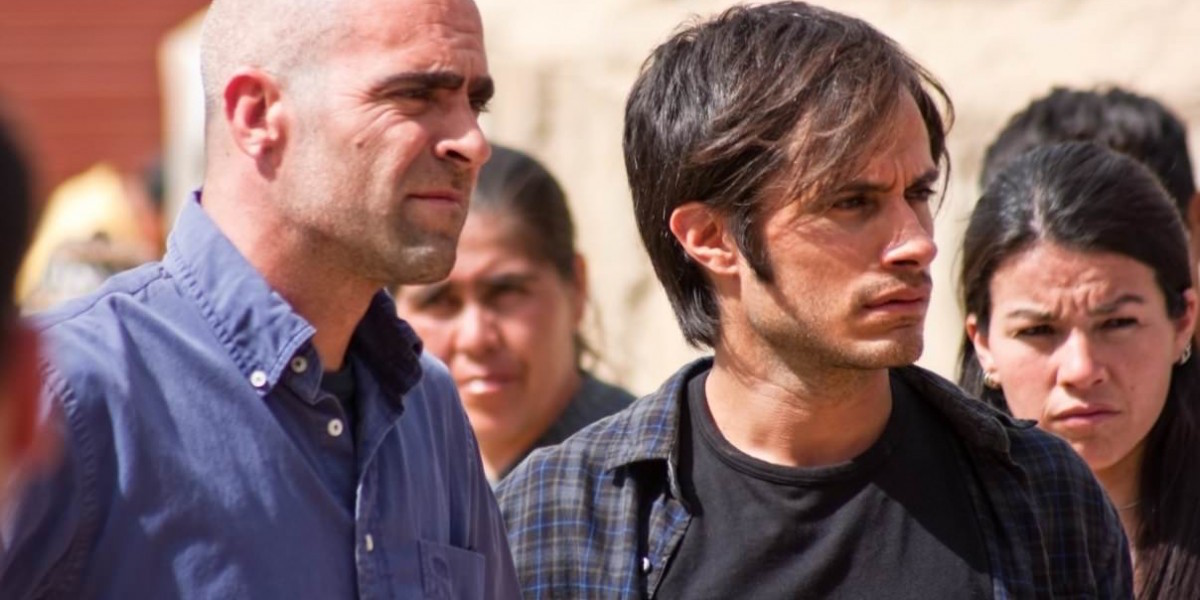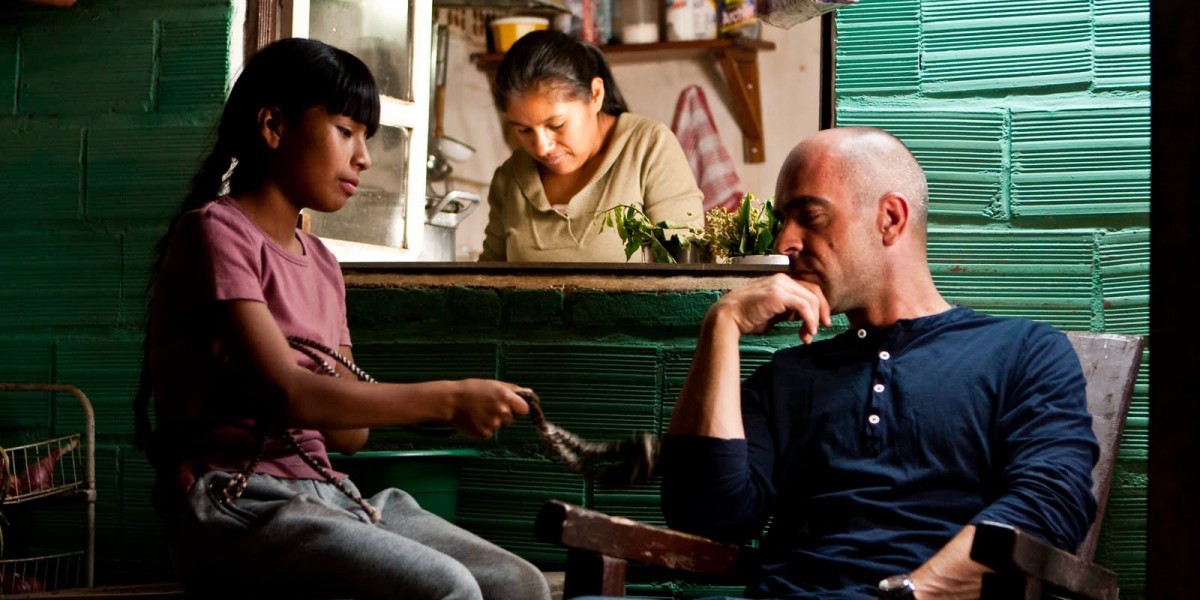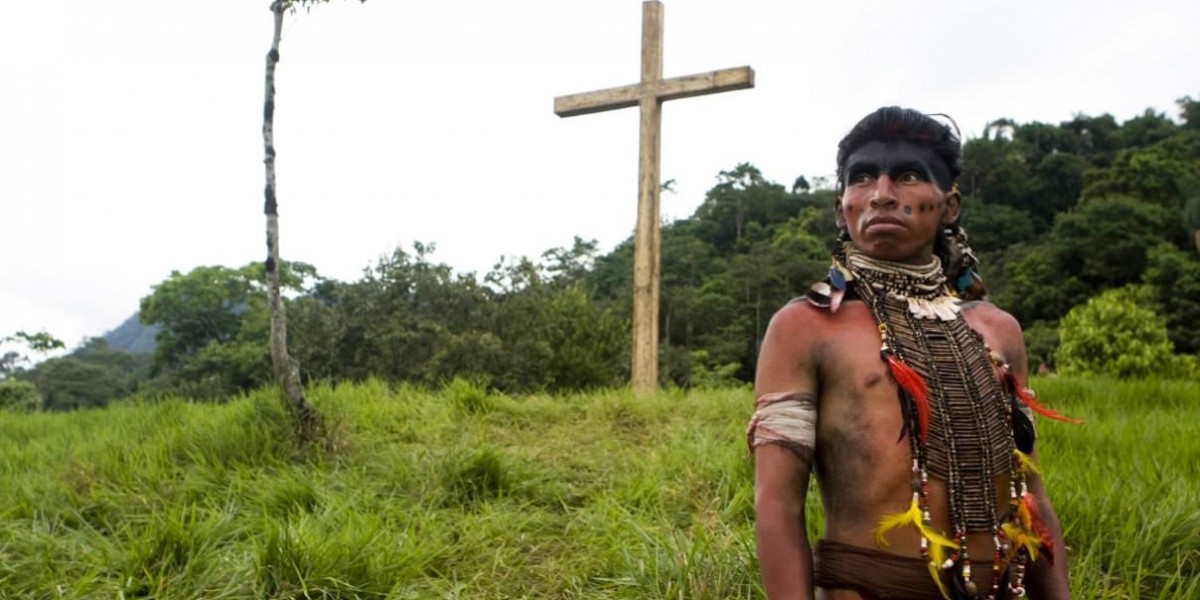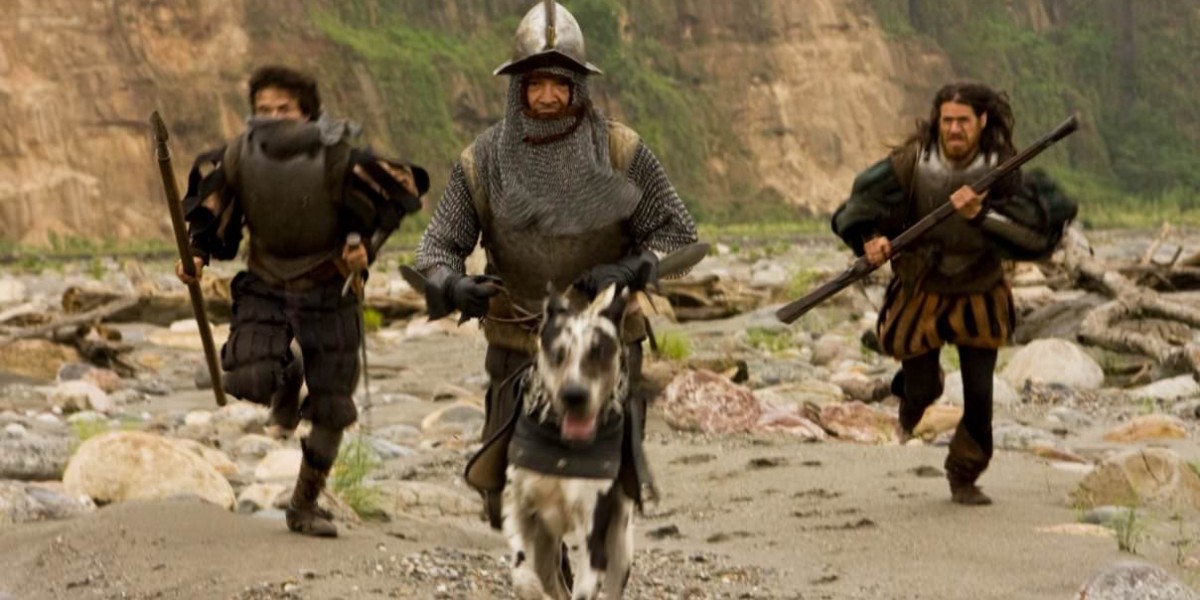Even the Rain
(También la Lluvia)
Icíar Bollaín / Mexico, Spain / 2011 / 104 min




Spanish submission to the Academy Awards®
Goya Awards®
Best Original Score, Best Production Supervision, Best Supporting ActorJames Agee Cinema Circle Awards
Best Picture, Best Foreign Film, Best Portrayal of People of ColorWriters Circle Awards, Spain
Best Director, Best Film, Best Score, Best Original Screenplay, Best Supporting Actor, Best CinematographyAssociation of Latin Critics of Entertainment
Best Director, Best Co-StarPalm Springs Int'l Film Festival
Bridging the Borders AwardEuropean Film Awards
Nominated Audience AwardSilver Ariel® Award
Best Latin-American FilmBerlin Film Festival
Audience AwardToronto Int'l Film Festival
Sundance Film Festival
Spanish Film Club
Related Films
 Bajarí: Gypsy BarcelonaEva VilaBajarí: Gypsy Barcelona offers an intimate look at how flamenco’s legacy is kept alive within Barcelona’s tight-knit Gypsy community. Juanito is ...
Bajarí: Gypsy BarcelonaEva VilaBajarí: Gypsy Barcelona offers an intimate look at how flamenco’s legacy is kept alive within Barcelona’s tight-knit Gypsy community. Juanito is ... The Liberator(El Libertador)Alberto ArveloStarring Édgar Ramírez, The Liberator narrates the story of Simón Bolívar, who fought over 100 battles against the Spanish Empire in South America. ...
The Liberator(El Libertador)Alberto ArveloStarring Édgar Ramírez, The Liberator narrates the story of Simón Bolívar, who fought over 100 battles against the Spanish Empire in South America. ... Clandestine Childhood(Infancia Clandestina)Benjamin ÁvilaBenjamín Ávila’s Clandestine Childhood (Infancia Clandestina) is an earnestly heartfelt cine-memoir based on the director/co-writer’s own tragic ...
Clandestine Childhood(Infancia Clandestina)Benjamin ÁvilaBenjamín Ávila’s Clandestine Childhood (Infancia Clandestina) is an earnestly heartfelt cine-memoir based on the director/co-writer’s own tragic ... Here and There(Aquí y Allá)Antonio Méndez EsparzaWinner of the top prize at the Critics’ Week section of the Cannes Film Festival, Antonio Méndez Esparza’s directorial debut radiantly captures the ...
Here and There(Aquí y Allá)Antonio Méndez EsparzaWinner of the top prize at the Critics’ Week section of the Cannes Film Festival, Antonio Méndez Esparza’s directorial debut radiantly captures the ... The Return(El Regreso)Hernán JiménezThe Return is the story of a delightful and life-changing journey back to Costa Rica. After living 10 years in New York, 30 year-old Antonio returns to ...
The Return(El Regreso)Hernán JiménezThe Return is the story of a delightful and life-changing journey back to Costa Rica. After living 10 years in New York, 30 year-old Antonio returns to ...Synopsis
Spanish with English subtitles
With Luis Tosar, Gael García Bernal, Carlos Adurivi, Karra Elejalde, Lorenza Acuña
In Even the Rain by Icíar Bollaín, filmmaker Sebastian (Gael García Bernal) and his cynical producer Costa (Luis Tosar) arrive in Cochabamba, Bolivia to make a film about Columbus’s voyage to the New World and the subjugation of the indigenous population. Just as filming begins, the natives face a crisis when the government privatizes the water company and prices skyrocket. Daily protests erupt and the local man cast as a rebellious sixteenth century Taino chief also becomes a leader in the water hike protests. Bollaín intercuts footage of Sebastian’s film, with recordings of the demonstrations that occurred during the real-life “Water Wars” that took place when the Bolivian government privatized the water company in 2000.
In this masterful film-within-a-film–which is anchored in the philosophies of historian Howard Zinn, as well as the stories of 16th-century priests, Fathers Bartolome de las Casas and Antonio Montesinos–Bollaín raises questions about exploitation in South America, blurring the lines between past and present, fiction and reality. With an airtight script by Paul Laverty (long-time Ken Loach collaborator) and stellar performances from cast Luis Tosar, Gael García Bernal, Carlos Adurivi, and Karra Elejalde, Even the Rain is Spain’s submission for the 2011 Academy® Awards.
WHAT SFC AFFILIATED UNIVERSITIES ARE SAYING
“The film sparked conversations about community solidarity, the global economy (multinationals and globalization), and fresh water supply (private profit or public domain?).” – Ivette Wilson, Assistant Professor of Spanish, Wabash College
“The audience loved the film. It was a very positive response. The comments were laudatory due to the superb acting, cinematography, script and powerful social justice theme.” – Angelique Dwyer, Assistant Professor in Modern Languages, Literature, and Cultures, Gustavus Adolphus College
Due to rights holder restrictions, this film can only be screened in person and will be provided in DVD format.
Related Subjects
About the Director
Press
“Splendidly panoramic…a grandeur and a force reminiscent of Terrence Malick films.” – Stephen Holden, THE NEW YORK TIMES
“Even the Rain is a brilliant movie. At a time when the poor of the world seem to be rising up, I found myself deeply moved and completely enthralled by this film. I encourage everyone in search of a great movie to go see Even the Rain.” – Filmmaker, Michael Moore (Fahrenheit 911)
“The historical film-within-film sequences are superbly done, with fine attention to period detail: Ironically, it’s when they are wearing period costume that the characters are most fully alive onscreen. Scenes of street conflict likewise have the raw power of documentary, and indeed incorporate footage from the 2000 Cochabamba water riots.” – Jonathan Holland, VARIETY
“Another astonishing performance is given by Juan Carlos Aduviri as the leader of the rebels, who is given a parallel part in the film-within-the-film as an Indian tribesman oppressed by the conquering Spaniards. Aduviri, discovered during open casting, seems remarkably unaffected and fiery. Bernal and the other actors find rich dimensions in their portrayals as some portray narcissistic movie stars etched with fine satiric flair.” – Stephen Farber, THE HOLLYWOOD REPORTER
“With the recent events in Egypt and a breeze of something igniting that sense of empowerment elsewhere in the Middle East, Even the Rain feels timely and of the moment. It’s the kind of movie that helps you remember to turn your gaze outward more often than you probably do.” – Marshall Fine, THE HUFFINGTON POST
“Raises provocative contemporary socioeconomic issues in a historically intelligent and dramatically effective way. Recommended. ” – Frank Swietek, Video Librarian
Notes on the Film
Directing Paul’s script presented an enormous and exciting challenge: to make three movies in one. Firstly, a period drama, secondly the near-contemporary story of the water conflict and finally, a film connecting the shoot itself and the personal journeys of the main characters, Sebastián and Costa, and the decisions they are forced to make. Maintaining the tension and drama within and between each of these three stories and leading the audience from one to the other was the greatest challenge. But in truth this complexity was a gift – a director is rarely given such an original story, so complex and with such compelling and multilayered characters, and one that resonates so richly with one of the most crucial conflicts of this century.